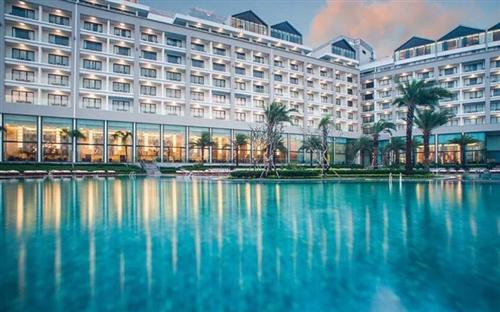HCMC, Hanoi take top positions in JLL’s City Momentum Index
HCMC, Hanoi take top positions in JLL’s City Momentum Index
HCMC and Hanoi City continue to lead the momentum in Southeast Asia, ranking third and seventh, respectively, among the most dynamic cities in the world. This is revealed in the latest City Momentum Index, now in its seventh year, by the real estate consultancy Jones Lang LaSalle (JLL).
The results show a continued shift in global influence from west to east, with Indian, Chinese and Vietnamese cities dominating the top positions.
Vietnam – with two cities in the top 20, the most of any country in the Southeast Asian region – featured highly in the global ranking. This is driven by soaring exports to the United States as Vietnam’s economy benefits from the Sino-American trade war, which is prompting companies to shift their supply chains.
“The remarkable dynamism in the emerging Asian economies is proof that economic reforms, business growth and infrastructure investment can drive the expansion of industry, significantly in the tech sector, and facilitate a start-up culture. This is now being repeated the world over, as geographical diversity looks to be returning to the Index,” said Jeremy Kelly, director of Cities Research at JLL, in a statement.
The index combines socio-economic and commercial property metrics of 130 markets to identify the world’s most dynamic urban centers. It identifies a number of key growth drivers, including talent attraction, the expansion of innovation hubs and better urban planning, that cities can employ to meet the challenges faced by rapid momentum.
Over recent years, Vietnam has entered a journey of international integration and creating an export-driven economy. Securing a large number of free trade agreements has set Vietnam up for a partnership with 60 countries worldwide, and support Vietnam on its path to become the new global manufacturing hub.
These successful trade pacts are also expected to boost Vietnam’s gross domestic product by 2.18%-3.25% annually by 2023 and by 4.57%-5.30% annually between 2024 and 2028.
Stephen Wyatt, country head of JLL Vietnam, said the achievement has strengthened Vietnam’s leading momentum in South East Asia, with HCMC (3rd) and Hanoi (7th) retaining their status as the top two cities leading the index and are set to have among the highest economic growth globally over the next several years.
However, rapid urbanization and strong economic growth in Vietnam are putting huge pressure on existing infrastructure.
While many other cities are struggling to keep pace with the growing demands for high-quality transport and utilities, both HCMC and Hanoi are responding to the infrastructure deficit by investing heavily in new metro networks to create large, commuter-intensive public transport systems.
For example, Long Thanh International Airport is also being constructed in the southern province of Dong Nai to supersede Tan Son Nhat as the HCMC-based international airport.
In response to demographics growth and the need for quality of life enhancement, smart-city technologies are presented as an appropriate measure to improve the city’s efficiency, livability and sustainability.
“One common ingredient when looking at cities that succeed at rapid-growth is the importance placed on governance and leadership – something often overlooked. The complex nature of city transformation relating to the innovation economy, climate mitigation and a changing geopolitical world means a city’s governance system is increasingly critical to a city being ‘future-fit’ for the coming decades,” Kelly said.
“JLL expects Vietnam’s fastest growing cities to maintain the level of interest from overseas investors, and continue on its growth trajectory, particularly with the help of government policy to resolve infrastructure deficit and city sustainability,” Stephen concluded.

























